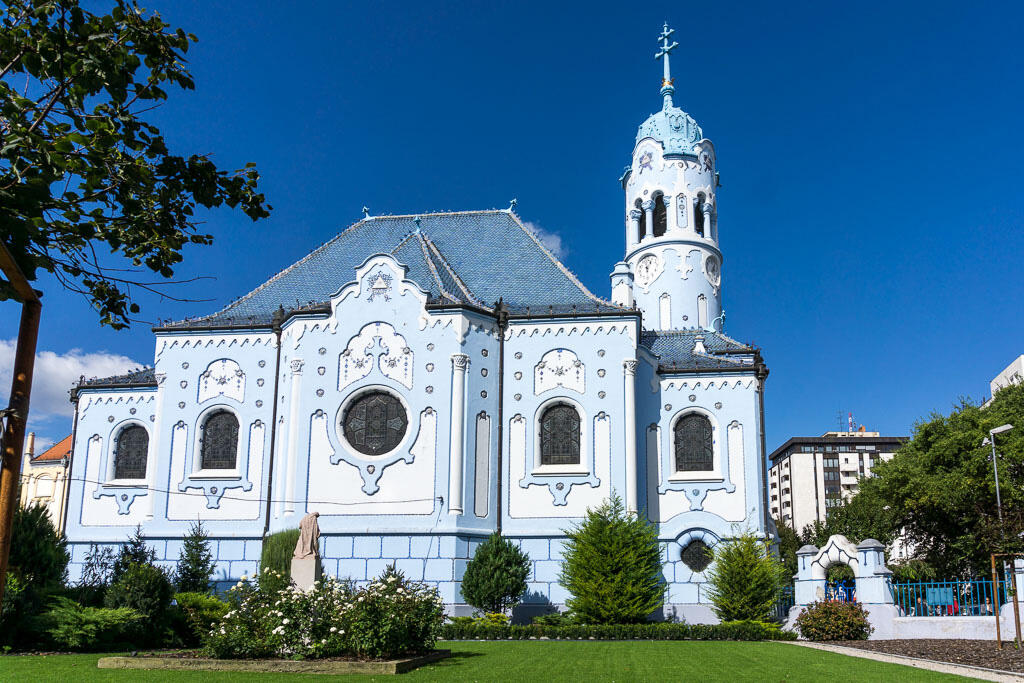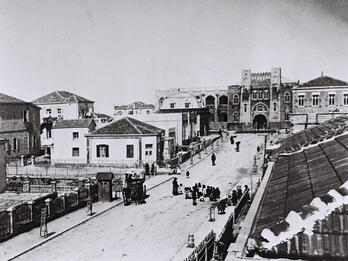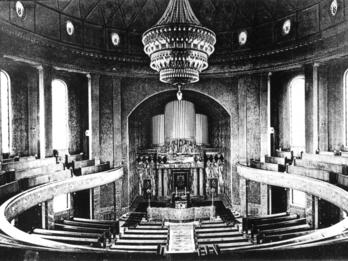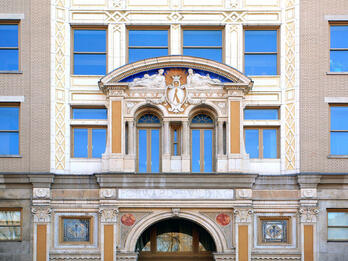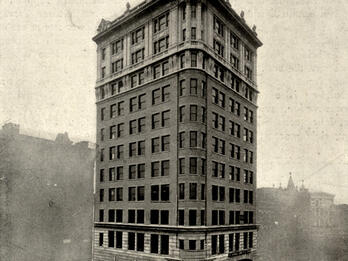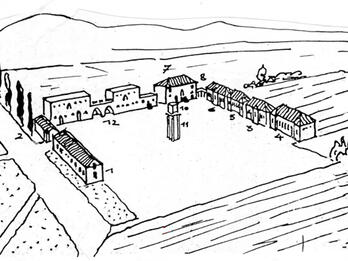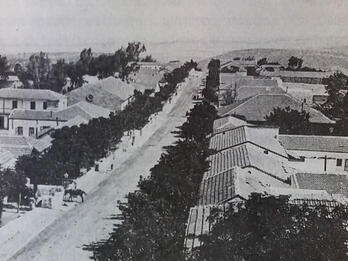The Blue Church of St. Elizabeth
Ödön Lechner
1913
The Church of St. Elizabeth, located in Bratislava (today in Slovakia), was designed by Ödön Lechner in the Hungarian Secession (art nouveau) style. It is called the Blue Church because of its blue majolica tiles, its roof, and the color of its façade, although originally the latter was painted in a paler pastel color. Its clock tower is cylindrical in shape, unusual for Slovakian Roman Catholic churches.
Credits
Ian G. Dagnall / Alamy Stock Photo.
Published in: The Posen Library of Jewish Culture and Civilization, vol. 7.


